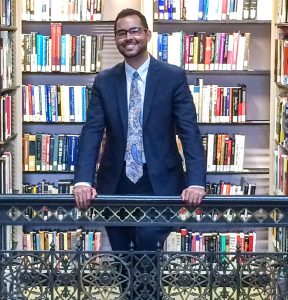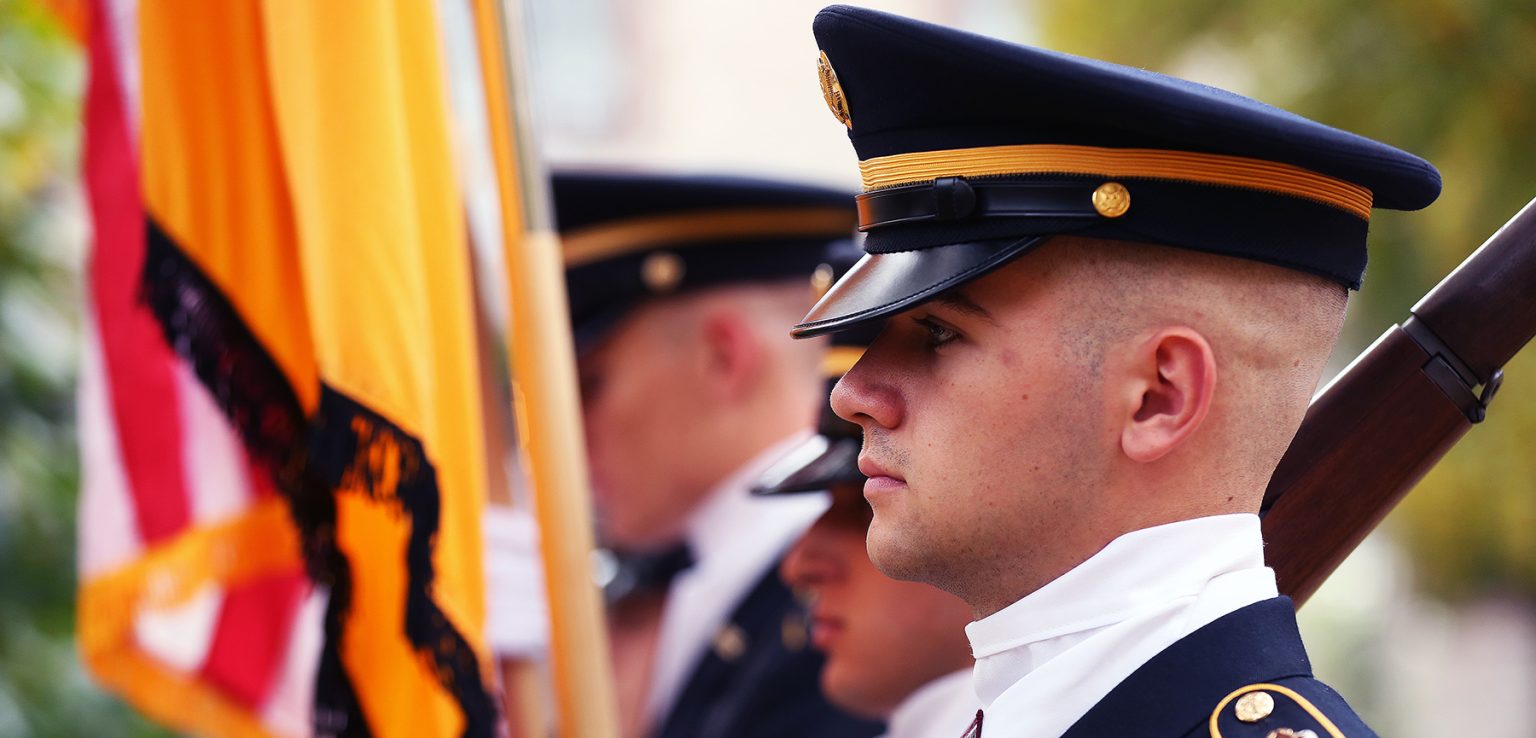Jayson Browder, PCS’ 13, is a former high school dropout turned decorated Air Force veteran, Fulbright scholar, and Presidential Management Fellow.
But he says he wouldn’t be where he is today without the help of his family and scholarship-savvy mentors.
“At Fordham, I had some very good mentors who said, ‘Here are the good opportunities and scholarships that are available for you,’” said the Iraq war veteran.

Now, Browder is sharing his experiences and personal success with other vets through Veterans4Diplomacy, a new program that he founded this year. The program is helping student veterans identify and earn scholarships and fellowships that will lead to roles in U.S. foreign policy.
Browder’s scholarship experience certainly speaks for itself. On graduating from Fordham, he served as a military adviser to U.S. Congressman Beto O’Rourke while awaiting a Fulbright scholarship that took him to northeast Turkey. On completing the Fulbright, he was accepted into a Global Executive MPA degree program between New York University and the University College London. He then returned to the White House as a Presidential Management Fellow.
This 2015-16 school year, Veterans4Diplomacy’s team of veterans and academics—who have earned a combined 28 prestigious scholarships and fellowships—is mentoring 14 fellows. Many of them, such as Browder, have earned more than one prestigious award.
But Browder said that while the program’s main goal is to help vets get scholarships like he did, there’s also a subtext to the program.
“We want to reframe the idea of what a vet-in-transition is,” he said of returning veterans. “There’s this idea out there that vets are broke, need to be fixed—that they need, need, need.
“Vets don’t feel that’s the case. We think we’re a natural resource to be tapped into.”
Browder said that the U.S. diplomatic corps is a “most natural place for talented and qualified” veterans to continue to make a difference by helping “develop intelligent foreign policies.”
“Vets don’t feel that’s the case. We think we’re a natural resource to be tapped into.”
Browder said that the U.S. diplomatic corps is a “most natural place for talented and qualified” veterans to continue to make a difference by helping “develop intelligent foreign policies.”“They bring a very pragmatic approach with a world view having implemented America’s foreign policy abroad,” he said.
Many, like him, have been deployed to foreign nations. After returning home, many have entered top colleges where they are able to combine that experience with the underpinnings of theory and policy, he said.
The mentoring consists of three-day group training at the beginning of the program, followed by one-on-one mentoring for the remainder of the year. From the start, the fellows begin by working on applications and personal statements. Leadership events and network opportunities in New York and Washington, D.C., later in the year keep the students up on discussions in international affairs from leading experts in the field.
Ultimately, Browder hopes that the program will transform American foreign policy by bringing in men and women service members with on-the-ground leadership experience.
“The vets come with a background in community development, nation building, and intelligence expertise,” he said. “They didn’t get into the military for money, and now that they’re back, they want to continue to serve in another capacity.”

